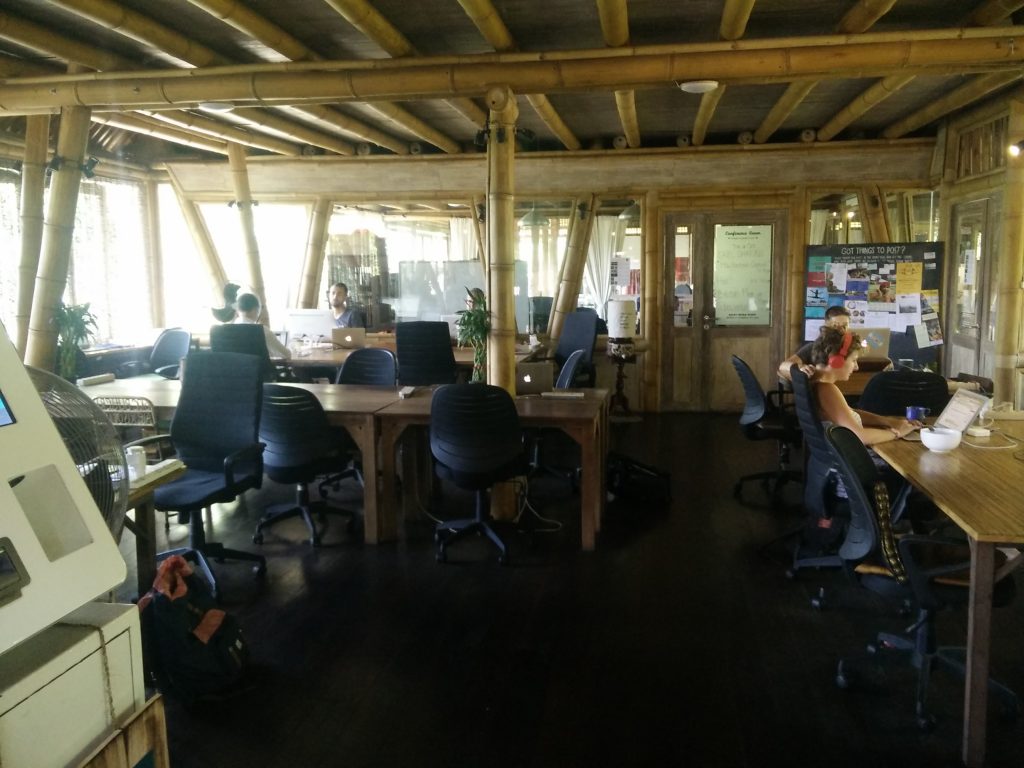When we first arrived to Ubud, Bali, we didn’t have a place to stay and the only thing I had looked up before was Hubud (a co-working space in Ubud) and that generally Ubud was a nice city to stick around in for a while – away from the very touristy and crowded Bali beaches.
The first two nights we spent at a run-of-the-mill place near the airport as it would just serve as a base to find our actual long term place in Ubud, Bali about 40km’s north (or about 1½ drive on motorbike). The first two days were spent running around looking for places, renting a motorbike and a lot of transportation time between Ubud and Denpasar. For those interested in how we found a place and what the prices were/are in the area for housing, motorbikes etc. please drop me a comment below or contact me here and I’ll be happy to help.
Without beating around the bush anymore, here are some semi-random observations I’ve made over the last two weeks.
The (foreign) tourists in Ubud, Bali
The crowds are noticeably older and much different from the typical teens, early 20’s backpackers so infamously present at the islands of south Thailand for example. In fact, most of them aren’t even backpackers but here for longer term (1+ years). They are not travelling only on budgets but have jobs of some sorts that they can work on from Bali which lets them keep on going for much longer than what a typical vacation budget can sustain. You also get a much more pronounced week rhythm like in “normal” cities with more nightlife in the weekends and less during weekdays because people actually work on weekdays. With islands like Koh Phi Phi (south Thailand) everyone’s on vacation and you have no idea what day of the week it is – the party is there every day all year around.

Why is this? I think the answer is simple – the beer is expensive and there are no beaches. With an hour to the nearest beach and beer at about 30000 IDR ($2,5) this is not where the typical tourist heads. Especially not when you’re already on Bali – an island overflowing with famous beaches. Ubud has lots of drowsy but pleasant rice paddies though and because the city is a bit up the mountains the temperature is more tolerable (~30 C). At this point, the city also has a reputation for having a good work environment and networking potential which further attracts more digital nomads.

Lastly, you also get your richer Australians looking for a get-away, honeymooners and other such types but they keep mostly to themselves in resorts or private villas.
Yoga, vegan food and organic food
Expanding on the previous topic about the types of people you see here there is an abundance of alternative lifestyles walking around. If having quit your stable 9-5 job and uprooted your life to work location independently – either freelancing, e-commercing or likewise isn’t “alternative” enough for you, you come here. When we were looking for a place to stay we saw many offers of, for example, yoga collectives where meat is banned and yoga instruction is free with the rent. Everywhere out in the rice fields you see these villas turned collectives.

There are lots of vegan/vegetarian restaurants and organic alternatives. Most of the menus (except the local shops) boast gluten-free alternatives or are organic only. The shops are flooding with high quality (and expensive) wares made using sustainable materials and definitely cater to a more demanding crowd than your typical “whatever is cheaper” type of person.
This also stems well with the fact that everyone’s a bit older here and have a bit more buying power. Most people here aren’t just teenagers on a gap year but are fully submerged in whatever lifestyle they chose. Prices on housing is given in monthly and yearly rates rather than daily.
The local market in central Ubud
A funny thing to remark is the local market. From 5:30am to about 7:30am the central market in the city is booming with locals buying fresh, cheap and overall delicious fruit and vegetables. Many small trucks turned stores come rolling in with fresh produce every morning. Then magically around 8am all these stalls vanish and the whole market turns into a tourist trap with cheap china jewelry, bintang (local beer) t-shirts, clothes and all other kinds of trinkets. At a bloated price. If you’ve got the morning constitution to get up early it’s an exciting transformation to witness.
This concludes part 1 of the series about Ubud, Bali – part 2 is ready here!



